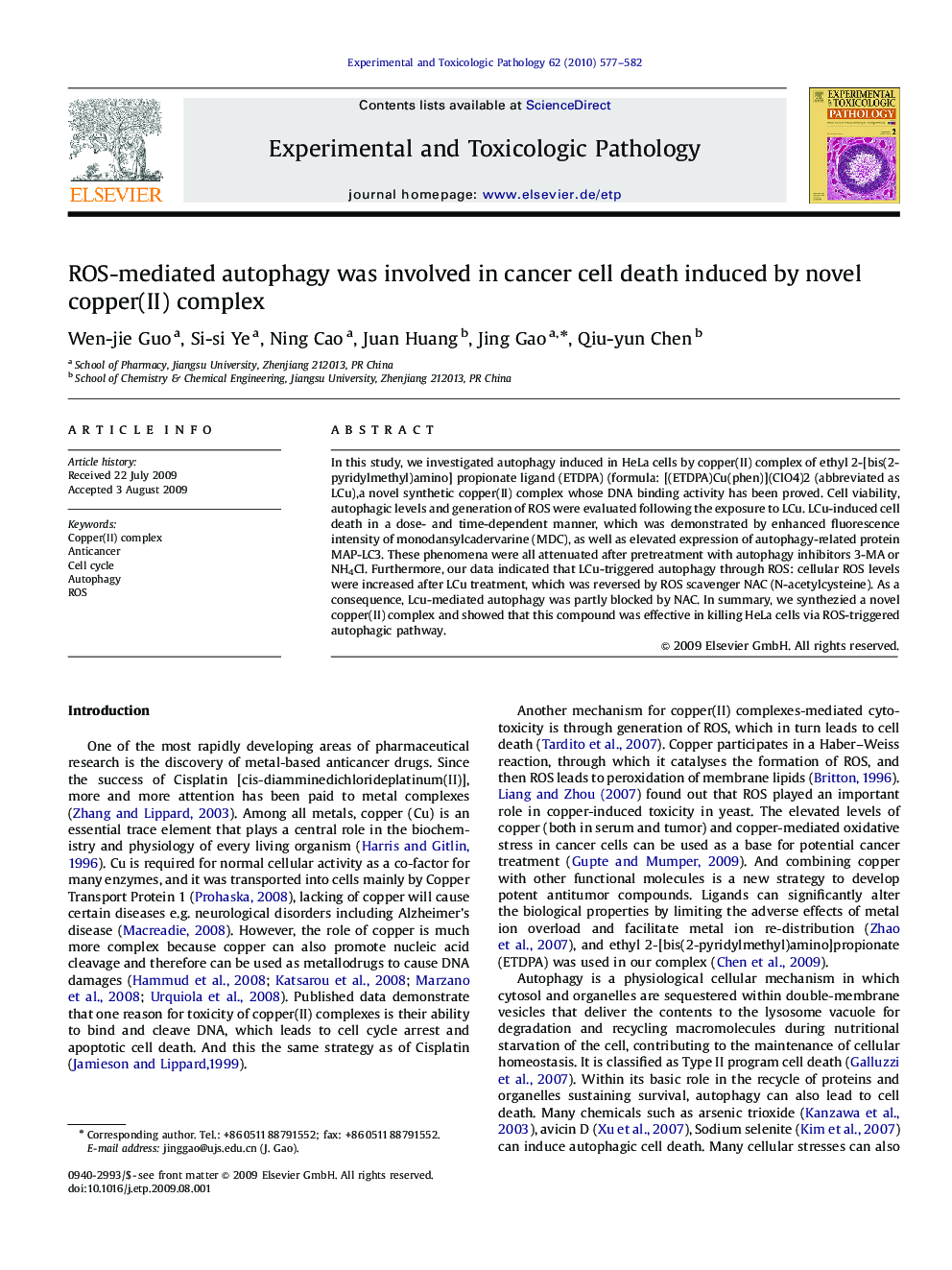| کد مقاله | کد نشریه | سال انتشار | مقاله انگلیسی | نسخه تمام متن |
|---|---|---|---|---|
| 2499579 | 1116517 | 2010 | 6 صفحه PDF | دانلود رایگان |

In this study, we investigated autophagy induced in HeLa cells by copper(II) complex of ethyl 2-[bis(2-pyridylmethyl)amino] propionate ligand (ETDPA) (formula: [(ETDPA)Cu(phen)](ClO4)2 (abbreviated as LCu),a novel synthetic copper(II) complex whose DNA binding activity has been proved. Cell viability, autophagic levels and generation of ROS were evaluated following the exposure to LCu. LCu-induced cell death in a dose- and time-dependent manner, which was demonstrated by enhanced fluorescence intensity of monodansylcadervarine (MDC), as well as elevated expression of autophagy-related protein MAP-LC3. These phenomena were all attenuated after pretreatment with autophagy inhibitors 3-MA or NH4Cl. Furthermore, our data indicated that LCu-triggered autophagy through ROS: cellular ROS levels were increased after LCu treatment, which was reversed by ROS scavenger NAC (N-acetylcysteine). As a consequence, Lcu-mediated autophagy was partly blocked by NAC. In summary, we synthezied a novel copper(II) complex and showed that this compound was effective in killing HeLa cells via ROS-triggered autophagic pathway.
Journal: Experimental and Toxicologic Pathology - Volume 62, Issue 5, September 2010, Pages 577–582